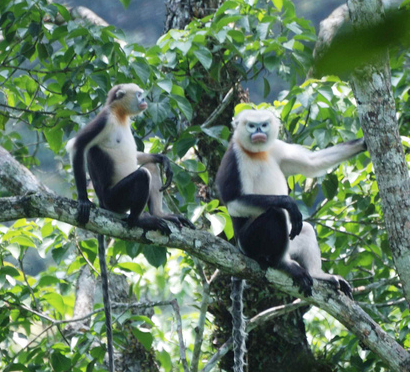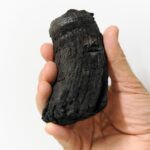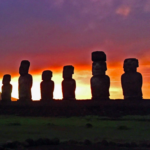New Scientist
Image: dangnguyenxuan
With a global population below 250, things have been looking bleak for the Tonkin snub-nosed monkey. But the creatures might be in even more trouble than we thought. One section of mitochondrial DNA seems to be identical in all members of the largest known population – a sign of inbreeding that can leave a species vulnerable to extinction.
“As far as we know, no other primate species is reported to have zero mitochondrial variability,” says Andie Ang at the University of Colorado Boulder. “Tonkins are showing the lowest thus far.”
It is difficult to source genetic information from such a rare species. Ang and her colleagues got their Tonkin DNA samples from faeces collected in the Khau Ca forest of Ha Giang province, Vietnam.
The forest is home to the largest wild population of Tonkins – about 130 individuals. Because Ang and her colleagues had 250 faecal samples, they are reasonably confident that most of the monkeys are represented. Read more on newscientist.com…








